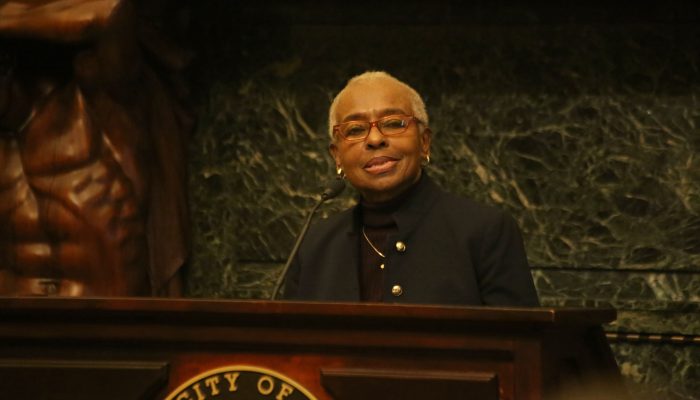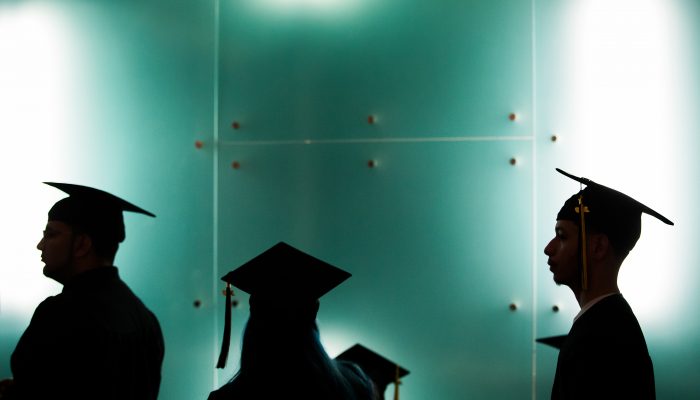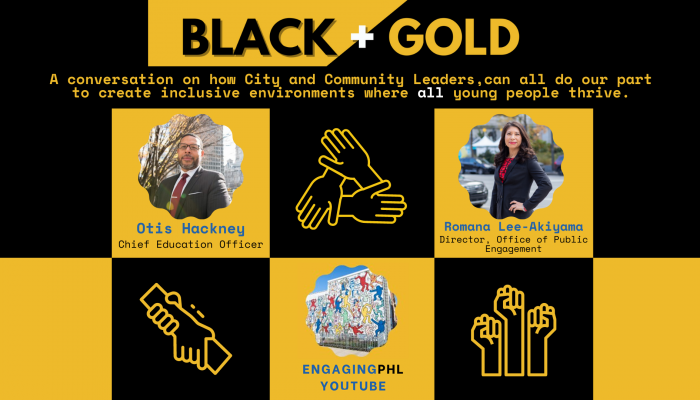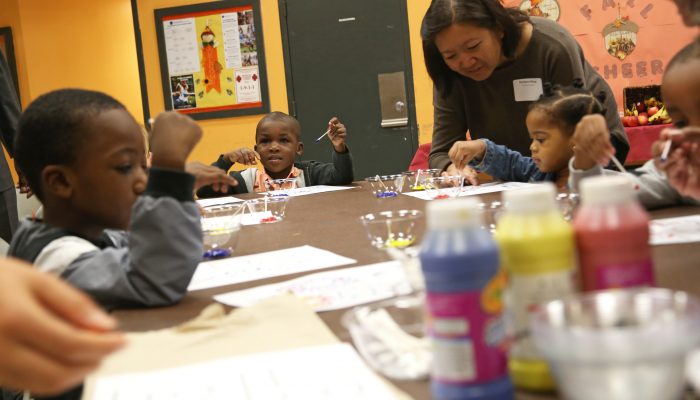Julia Danzy is one of the first nine members appointed by Mayor Kenney to the Philadelphia Board of Education (BOE) in April 2018. Beginning in July 2018, the Board will oversee the School District of Philadelphia.
Julia has dedicated her life to the welfare of Philadelphia’s children. She has worked in the Pennsylvania Department of Welfare, Philadelphia City Council, and has served as Deputy Commissioner for Children Services in the Philadelphia Health Department. Julia attended Howard University and earned a Master in Social Work from Columbia University and a Master in Government Administration from the University of Pennsylvania.
What area of the city do you call home? What do you like to do in your free time?
I live in Germantown. I’m really an avid reader. I like to read nonfiction books, especially books that deal with politics and history, and I enjoy mysteries. I also love playing games and doing puzzles, like crosswords and sudoku.
Who were the people in your life who shaped your values?
My grandmother had this saying: “Whatever is worth doing, is worth doing well.” As a result of that, when I get my teeth in something, I can’t turn it loose until I’ve solved it.
My mother – and really all of my family – believed in being fair to people, and saw education as a way to better your circumstances. My roots are in the South, and my mother was just a generation away from slavery. Even though she was educated, she could not get the teaching jobs she wanted. She knew about the sacrifices that had been made for her, and consequently for me. This seared in me that education was a priority, and I knew that it was my responsibility and obligation to continue my education.
What motivated you to apply to join the Board of Education?
I was brought up in the sixties. I came of age doing demonstrations – marching, advocating for the poor, the disenfranchised, the vulnerable. This continued in my career, primarily focused on children, because they are the most vulnerable, most dependent upon the actions of adults.
I wanted to become a member of the board of education because I fear that our society is mostly leaving the vulnerable to their own devices. Our children are the most vulnerable. They depend totally upon the actions of adults – particularly our very young.
Is there a teacher that made a positive impact in your life during your K-12 education?
I loved to read as a kid, and would get my books from the library when I was in middle school. When I was in 7th or 8th grade, the librarian got out The Iliad for me. I told her I couldn’t read it, but she assured me I was ready for it. That helped me realize that you have to push beyond where you currently are in order to grow.
Tell us a little bit about your experience with public education.
I can understand the feeling parents have when they want a certain quality of materials and education for children. Where I grew up in Georgia, we learned from second-hand books. You could see that the books came from white schools. You could see that they were used, and you knew that the only reason you got them was because someone else had gotten new ones. You knew that your education was a step behind. So I can appreciate a parent’s desire and demand for adequate supplies for their children, and a teacher who cares about them.
What vision do you have for our school system in 5 years?
I think we need many kinds of partnerships. Nobody can abdicate their role.
There also has to be a better partnership between the education system and all of our support systems provided in the city. One of the greatest frustrations for me when I was at the Department of Human Services was that the social work system was charged with making sure children went to school, but there was a huge disconnect between our office and the schools.
I would also like to see better alignment with our mental health and homeless services. How can we sync up so that the stress is less on the child, and more on the system? We have existing services, so how do we get them to the schools where we know there are students who need those services?
What do you hope to learn or gain a better understanding of during the listening tour?
I think that’s going to be the most effective part of my training for the Board. I hope that the attendees are mostly parents. I want it to be more than just people who are interested in education from a theoretical or abstract point of view. I want to hear from people who are living it.
I want to hear how parents feel they’re received by the schools and the system. Perception is reality, so we can do everything in the world – but if our recipients and our partners don’t feel or see those efforts, it’s not enough.




